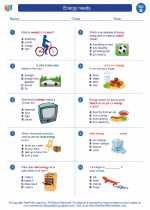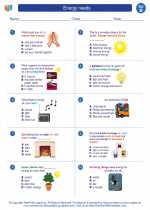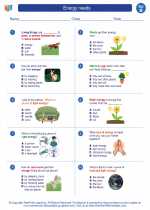Energy needs -> nuclear fission
Nuclear Fission
Nuclear fission is a process in which the nucleus of an atom splits into two or more smaller nuclei, releasing a large amount of energy. This process is the basis for nuclear power plants and nuclear weapons.
Explanation
During nuclear fission, a heavy nucleus, such as uranium-235 or plutonium-239, absorbs a neutron, becoming unstable and splitting into two smaller nuclei, along with several neutrons and a large amount of energy. These released neutrons can then go on to initiate further fission reactions, creating a chain reaction.
Energy Release
The energy released during nuclear fission is the result of the mass defect, where the total mass of the products is less than the mass of the original nucleus. This "lost" mass is converted into energy according to Einstein's famous equation, E=mc^2.
Applications
Nuclear fission is used in nuclear power plants to generate electricity. The heat produced by the fission reaction is used to create steam, which drives turbines to generate electricity. It is also the principle behind nuclear weapons, where the rapid release of energy from fission reactions results in a powerful explosion.
Study Guide
- What is nuclear fission? Give a brief explanation.
- Describe the process of nuclear fission and the role of neutrons.
- How is the energy released during nuclear fission? Explain the mass defect and its relation to energy release.
- What are the applications of nuclear fission? Provide examples of how it is used.
- Discuss the concept of chain reaction in the context of nuclear fission.
[Nuclear Fission] Related Worksheets and Study Guides:
.◂Science Worksheets and Study Guides Second Grade. Energy needs

 Worksheet/Answer key
Worksheet/Answer key
 Worksheet/Answer key
Worksheet/Answer key
 Worksheet/Answer key
Worksheet/Answer key
